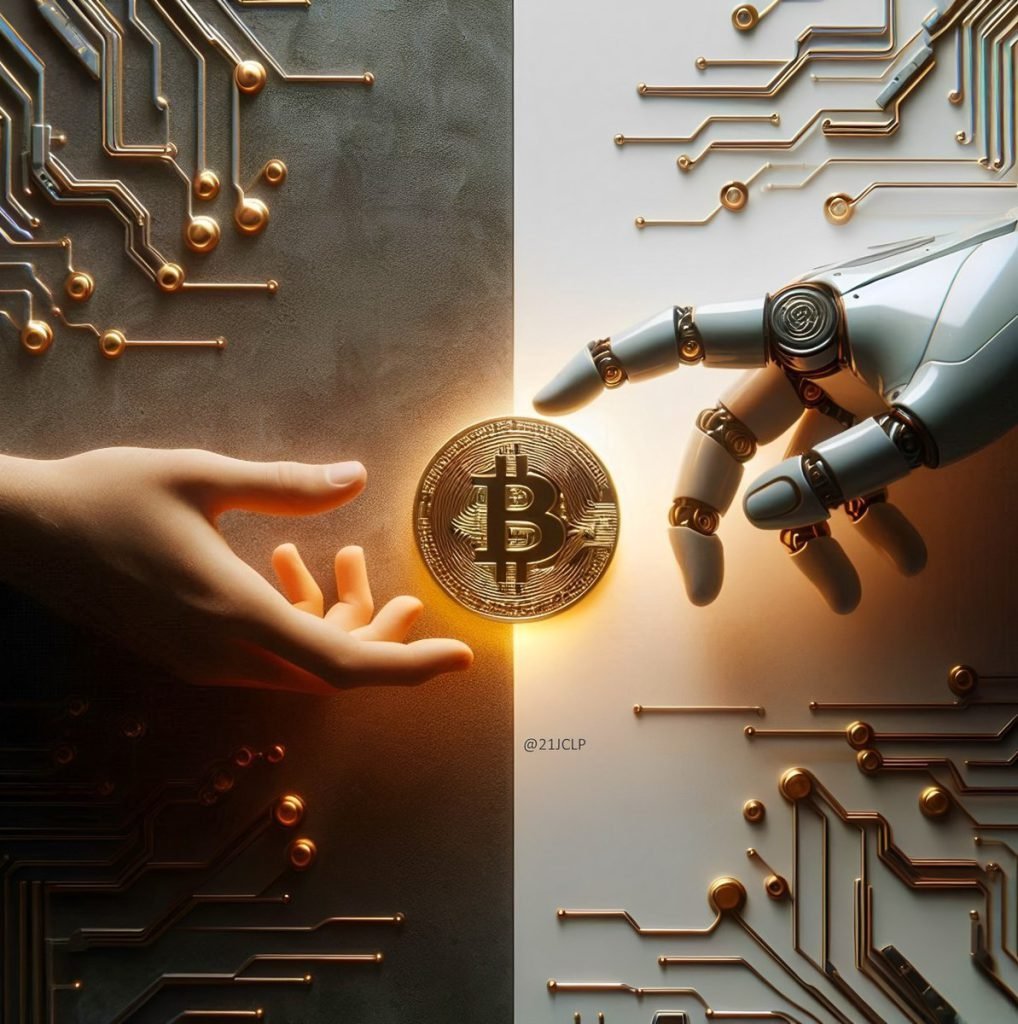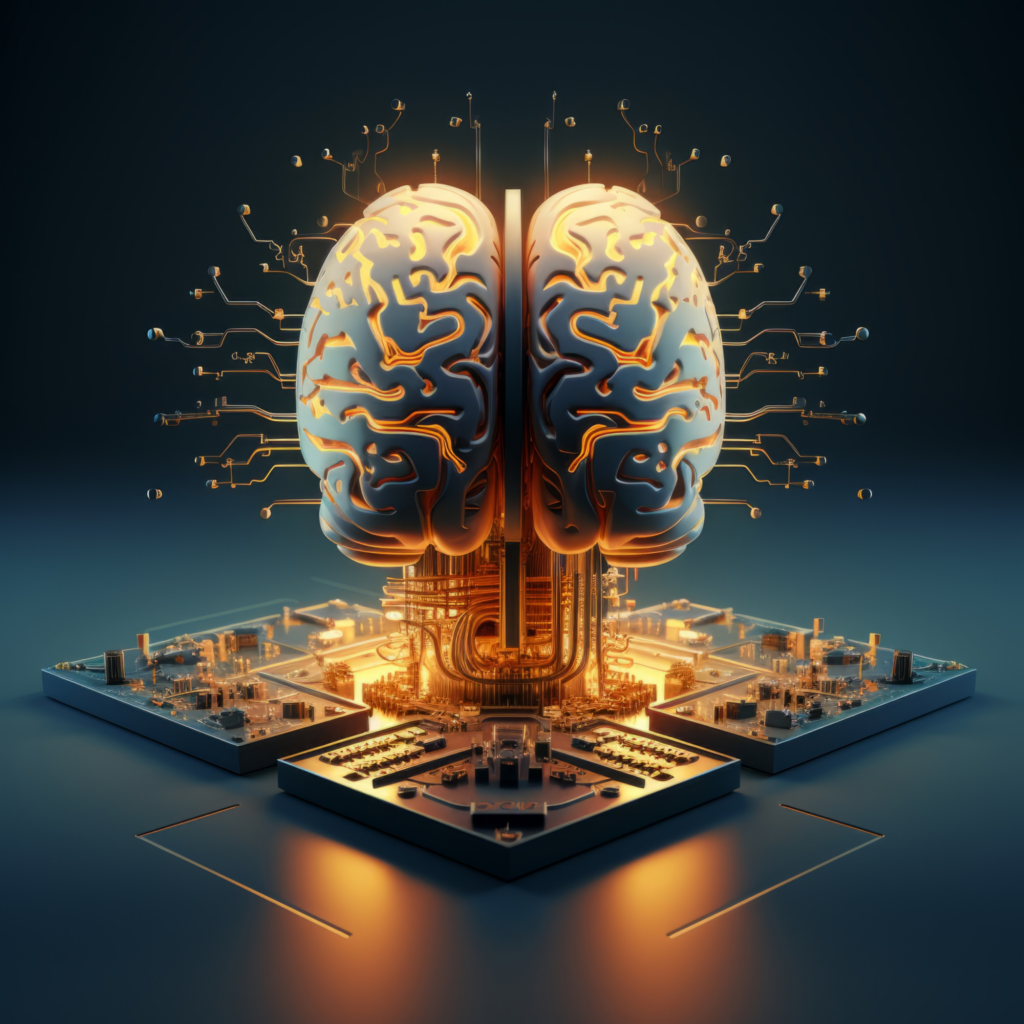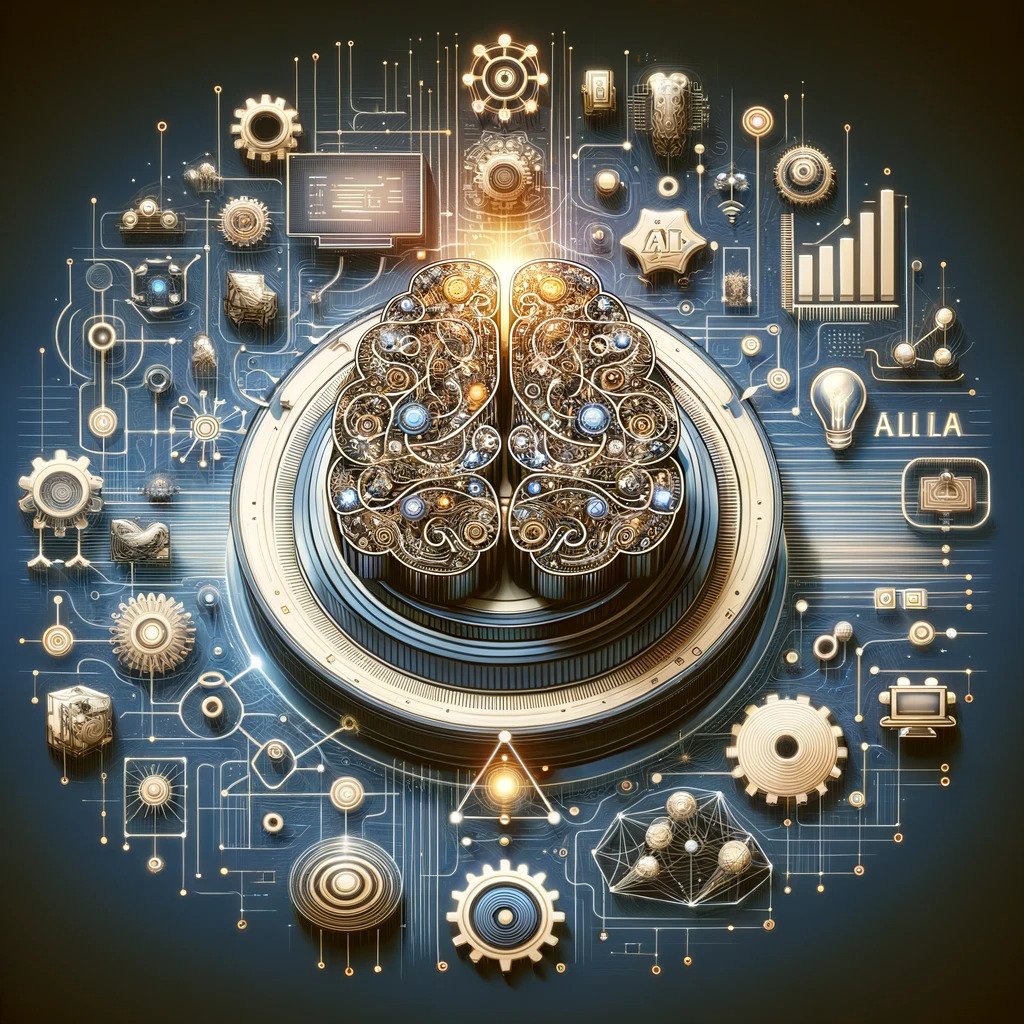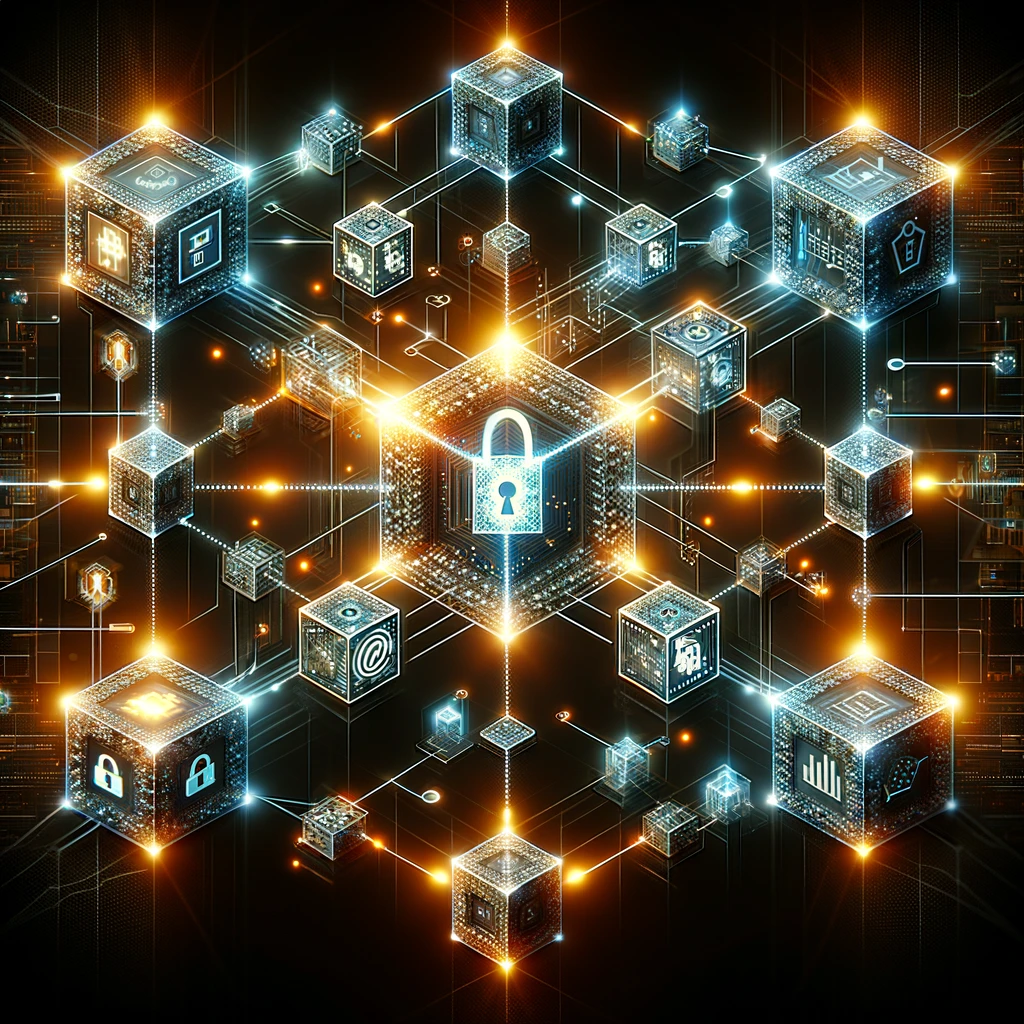AI & Big Data
One of the most promising industries in the blockchain space
AI Applications on Blockchains
Artificial Intelligence (AI) is increasingly being integrated with blockchain technology to create decentralized and transparent AI applications. AI agents on blockchain networks can operate autonomously, executing tasks like data analysis, predictive modeling, and decision-making without human intervention. These AI agents are immutable, ensuring that once they are deployed, they cannot be tampered with, which enhances trust in their operations. A notable project in this space is SingularityNET, a decentralized platform that allows anyone to create, share, and monetize AI technologies at scale. Additionally, AI marketplaces on blockchains allow developers and organizations to share, buy, or sell AI models and datasets in a decentralized manner, fostering innovation and collaboration across the globe.
Another significant application is AI-driven fraud detection. By leveraging blockchain’s transparency and AI’s analytical power, systems like those developed by Fetch.AI can identify suspicious activities in real-time, reducing fraud risks in financial transactions and other sectors. AI governance is also gaining traction in the blockchain world, where AI algorithms help manage decentralized autonomous organizations (DAOs). In these setups, AI can facilitate more efficient and unbiased decision-making processes, ensuring that governance is fair, transparent, and aligned with the community’s goals.
*Note that the projects SingularityNET, Fetch.AI and Ocean Protocol have now merged to form Artificial Superintelligence Alliance

AI Applications on Blockchains

Artificial Intelligence (AI) is increasingly being integrated with blockchain technology to create decentralized and transparent AI applications. AI agents on blockchain networks can operate autonomously, executing tasks like data analysis, predictive modeling, and decision-making without human intervention. These AI agents are immutable, ensuring that once they are deployed, they cannot be tampered with, which enhances trust in their operations. A notable project in this space is SingularityNET, a decentralized platform that allows anyone to create, share, and monetize AI technologies at scale. Additionally, AI marketplaces on blockchains allow developers and organizations to share, buy, or sell AI models and datasets in a decentralized manner, fostering innovation and collaboration across the globe.
Another significant application is AI-driven fraud detection. By leveraging blockchain’s transparency and AI’s analytical power, systems like those developed by Fetch.AI can identify suspicious activities in real-time, reducing fraud risks in financial transactions and other sectors. AI governance is also gaining traction in the blockchain world, where AI algorithms help manage decentralized autonomous organizations (DAOs). In these setups, AI can facilitate more efficient and unbiased decision-making processes, ensuring that governance is fair, transparent, and aligned with the community’s goals.
*Note that the projects SingularityNET, Fetch.AI and Ocean Protocol have now merged to form Artificial Superintelligence Alliance
AI and Blockchain Synergy

The synergy between AI and blockchain opens up new avenues for creating secure, efficient, and transparent AI solutions. On blockchain platforms, AI can analyze vast amounts of data from decentralized sources, enabling more accurate predictions and insights. For example, decentralized AI networks like Ocean Protocol can process data from multiple sources to train AI models, ensuring that the data is not biased or manipulated. This democratizes access to AI technologies, making advanced analytics available to a broader audience.
Moreover, AI-powered systems on blockchains can enhance automation and improve decision-making processes across various industries. For instance, AI algorithms can be embedded in smart contracts, enabling automated, data-driven decisions in financial services, supply chain management, and other sectors. By combining AI with blockchain’s decentralized and immutable nature, these applications offer robust solutions that are resilient to manipulation, enhancing trust and reliability in AI-driven operations.
AI and Blockchain Synergy

The synergy between AI and blockchain opens up new avenues for creating secure, efficient, and transparent AI solutions. On blockchain platforms, AI can analyze vast amounts of data from decentralized sources, enabling more accurate predictions and insights. For example, decentralized AI networks like Ocean Protocol can process data from multiple sources to train AI models, ensuring that the data is not biased or manipulated. This democratizes access to AI technologies, making advanced analytics available to a broader audience.
Moreover, AI-powered systems on blockchains can enhance automation and improve decision-making processes across various industries. For instance, AI algorithms can be embedded in smart contracts, enabling automated, data-driven decisions in financial services, supply chain management, and other sectors. By combining AI with blockchain’s decentralized and immutable nature, these applications offer robust solutions that are resilient to manipulation, enhancing trust and reliability in AI-driven operations.
The Link Between AI and Big Data
AI’s effectiveness relies heavily on access to vast amounts of data, commonly referred to as Big Data. Blockchain technology provides a secure and transparent way to collect, store, and share this data across decentralized networks. Projects like Streamr focus on decentralized real-time data streams that feed AI systems, ensuring the availability of high-quality data. However, AI’s need for data processing also requires substantial computational power, often provided by GPU rendering. This is where blockchain can play a crucial role by creating decentralized networks of GPUs, like those in Render Network, enabling AI systems to access the necessary computational resources.
In this ecosystem, AI algorithms analyze large datasets to extract meaningful insights, while blockchain ensures that the data used is transparent and unalterable. The combination of AI and blockchain allows for more accurate and trustworthy AI models, which can be used in various applications, from predictive analytics to autonomous decision-making. The convergence of these technologies is driving advancements in areas like personalized medicine, financial forecasting, and smart city developments.

The Link Between AI and Big Data

AI’s effectiveness relies heavily on access to vast amounts of data, commonly referred to as Big Data. Blockchain technology provides a secure and transparent way to collect, store, and share this data across decentralized networks. Projects like Streamr focus on decentralized real-time data streams that feed AI systems, ensuring the availability of high-quality data. However, AI’s need for data processing also requires substantial computational power, often provided by GPU rendering. This is where blockchain can play a crucial role by creating decentralized networks of GPUs, like those in Render Network, enabling AI systems to access the necessary computational resources.
In this ecosystem, AI algorithms analyze large datasets to extract meaningful insights, while blockchain ensures that the data used is transparent and unalterable. The combination of AI and blockchain allows for more accurate and trustworthy AI models, which can be used in various applications, from predictive analytics to autonomous decision-making. The convergence of these technologies is driving advancements in areas like personalized medicine, financial forecasting, and smart city developments.
dBigData: Ownership and Monetization

Decentralized big data platforms on blockchains empower individuals and organizations to own and control their data. Traditionally, large corporations have collected and monetized user data, often without explicit consent. Blockchain changes this dynamic by enabling users to own their personal data and decide how it is shared and monetized. For example, Ocean Protocol enables individuals to sell their data to companies for rewards, ensuring they benefit directly from the use of their information.
Moreover, the immutability and provenance provided by blockchain ensure that data cannot be altered once it is recorded. This is crucial for maintaining data integrity, especially in industries like finance, healthcare, and supply chain management, where accurate data is vital. By leveraging blockchain, decentralized big data platforms can create a more equitable ecosystem where data ownership and monetization are transparent and fair, reducing the dominance of centralized entities in the data economy.
dBigData: Ownership and Monetization

Decentralized big data platforms on blockchains empower individuals and organizations to own and control their data. Traditionally, large corporations have collected and monetized user data, often without explicit consent. Blockchain changes this dynamic by enabling users to own their personal data and decide how it is shared and monetized. For example, Ocean Protocol enables individuals to sell their data to companies for rewards, ensuring they benefit directly from the use of their information.
Moreover, the immutability and provenance provided by blockchain ensure that data cannot be altered once it is recorded. This is crucial for maintaining data integrity, especially in industries like finance, healthcare, and supply chain management, where accurate data is vital. By leveraging blockchain, decentralized big data platforms can create a more equitable ecosystem where data ownership and monetization are transparent and fair, reducing the dominance of centralized entities in the data economy.
Privacy, Security, and the Future of Big Data
Privacy and security are paramount in the decentralized big data landscape. Blockchain technology offers enhanced security through encryption and decentralized storage, making it significantly harder for malicious actors to access or tamper with data. Additionally, blockchain’s transparency ensures that any access to data is logged and traceable, giving users control over who can view and use their data. There are projects that focus on privacy-preserving computation, allowing data to be processed securely without exposing sensitive information.
Furthermore, blockchain’s decentralized nature ensures that data is not stored in a single location, reducing the risk of data breaches. As the use of AI and big data continues to grow, these security measures will become increasingly important in protecting user privacy and maintaining trust in digital systems. The future of big data on blockchain holds the promise of a more secure, private, and user-centric data economy, where individuals have greater control over their personal information and its use in the digital world.

Privacy, Security, and the Future of Big Data

Privacy and security are paramount in the decentralized big data landscape. Blockchain technology offers enhanced security through encryption and decentralized storage, making it significantly harder for malicious actors to access or tamper with data. Additionally, blockchain’s transparency ensures that any access to data is logged and traceable, giving users control over who can view and use their data. There are projects that focus on privacy-preserving computation, allowing data to be processed securely without exposing sensitive information.
Furthermore, blockchain’s decentralized nature ensures that data is not stored in a single location, reducing the risk of data breaches. As the use of AI and big data continues to grow, these security measures will become increasingly important in protecting user privacy and maintaining trust in digital systems. The future of big data on blockchain holds the promise of a more secure, private, and user-centric data economy, where individuals have greater control over their personal information and its use in the digital world.
Support us in our mission
The best way to support our mission is to ‘Learn and Tell’ about decentralization. To help us improve our website you can buy the recommend books through affiliate links, watch our content on YouTube or donate Bitcoin on our Lightning wallet address. Learn more below!
Contact us!
Any recommendations about our website, or questions about decentralization or the content provided? Do not hesitate to contact us! You can drop us a message on the contact page or drop us an email at: info@r2decentralization.com